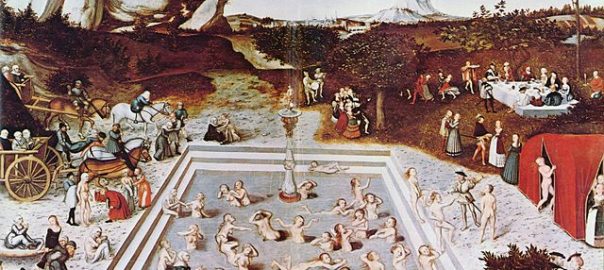On a balmy May night, amidst a flurry of insect choruses performing great symphonies in the towering grass, I sat in my chair and had what I can only assume to be a dramatic revelation. All writers, I said to myself while striking the flint of my trusty windproof lighter and immolating the end of a cigarette, are time-travelers.
I had never considered such a notion before, as it essentially neatly sidesteps my mantra of living in whatever moment is currently taking place. But in pondering the great literary minds of the past and having ethanol-soaked conversations with their ghosts, I came to realize that regardless of their popularity at the time of their deaths, their existence persists in the further indulgence of their work. Their words act like the machine of Wells’ design, each read of Infinite Jest, Ulysses, and The Picture of Dorian Gray, to name just a few of the many examples, placing their respective composer firmly within the moment in which their texts begin a classical waltz with the reader.
For the sake of full disclosure, I cannot say why it took me so long to realize this. I have spent the last three decades composing in some form and it seems to have only just now hit me that compositions live on long after their author withers away entombed in the soggy, malodorous kingdom of worms.
Perhaps it may have something to do with the fact I am finally starting to get the first gentle, supple tastes of success? Perhaps it has something to do with suddenly approaching the age of thirty? Perhaps both?
In my extreme youth, I feverishly put pedestrian diction to wide-ruled notebook paper, rending scores of number two pencils until only the frail ferrule surrounding what was left of the pink rubber eraser survived. Those were carefree days; I never looked at writing as a career choice. At the time, I believe I wanted to be doctor, or a veterinarian, or a taxidermist (I had some strange childhood aspirations). Yet, I received so much pleasure from writing one-page short stories about ghosts, goblins, and interpretations of slasher movie plots (I had some strange childhood interests), I devoted a considerable portion of my free time to doing just that. Then, I would seal them closed with Crayola wax conveniently liquefied by my intense desk lamp that in retrospect may have actually been a fire hazard.
In my adolescence, I had become interested in music and by my early-20’s, I found myself in a new part of the country every other day performing textured, ether-drenched guitar riffs, reverb-rich bass notes, and sharp, shimmering percussion of my own composition to people I didn’t know in places I had previously never been. I cannot say whether youthful naiveté or the perpetual, ambient fog of marijuana and acid had anything to do with my lack of comprehension that my masterpieces, my art, would last forever, but as I quickly creep on the thirtieth anniversary of my birth, I now fully realize that everyone who witnessed the shows I performed with my band mates will always have some memory of that intimacy we shared, and it is in that memory that I will live on even after I turn to dust.
In the present, I am in the process of building a brand. Taking cues from the great minds who came before me, I craft fictional tales of inconsistent quality and provide sociopolitical commentary to hundreds of thousands of unique readers. In being a novelist and poet, I have come to realize that the men and women who have inspired me continue to live on not only through their own words, but also through mine. As a journalist, I now understand that even men and women who are not among the ranks of literary composers enjoy the time-bending perks as well, for their influence is felt to this day in morality, legislation, and jurisprudence.
So, maybe to restrict these musings solely to those who contribute to the finer arts is dishonest. Perhaps any contribution, even those in the realms of politics, social sciences, history, mathematics, and the empirical sciences also time-travel? Perhaps these men and women also live on, even long after their bodies have been returned to the Earth and recycled for reuse in the creation of someone else who, perhaps, may live on in defiance of time as well?
When I consider these notions, opening a book to engage the mind of someone else existing in a different point in time, it is difficult for me to not contemplate if I, too, will live on long after I am dead, joining the ranks of thousands who came before me and maybe even welcoming thousands more who will follow. Everything I put to paper will exist ad infinitum, which is, at least to me, a daunting insight.
But I would be Herodotus if I said it was not an enticing one and I would be James Frey if I stated I wouldn’t become comfortable with the notion of continuing to live on long after I am dead through the integrity of my work.
So at the end of the day, not only do those who write time-travel, but they also cheat death. Extinguishing my cigarette in a unique, handcrafted ashtray, I stand from my chair, as if to applaud the symphonic efforts of the insects below, and say to myself: to write is to take a blade to your palm and slowly drip crimson life in the brisk waters of the Fountain of Youth.
Copyright 2016 by Robert L. Franklin. All rights belong to the author and material may not be copied without the author’s express permission.
